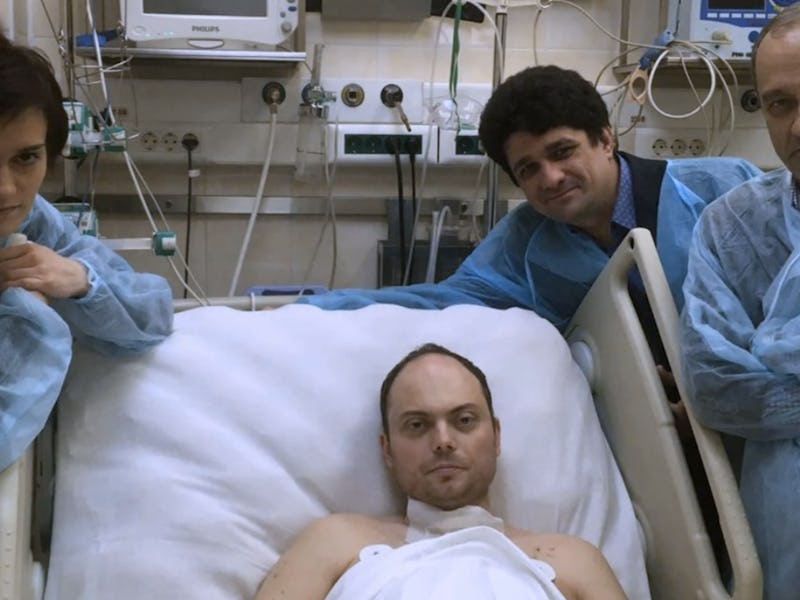'60 Minutes' Explores the Kremlin’s Dark History of Poisoning
Activist Vladimir Kara-Murza says he is the latest victim.

In March of 2015, Russian activist Vladimir Kara-Murza says that after falling mysteriously ill, he found himself on eight different life support machines with a five percent chance or survival. Despite the odds, Kara-Murza pulled through, and a toxicology report later found heavy metals had been in his blood at the time of his illness. Although no specific toxin was found, Kara-Murza believes that he was poisoned, and he’s convinced that his activism caused his illness.
“I don’t know the who, or the how, but I do know the why,” he tells Lesley Stahl.
On Sunday night, 60 Minutes profiled some of the more macabre fates of Putin’s most vocal opponents. Of those who have risked publicly criticizing the regime, a number have been killed in unsolved shootings, or have reportedly committed suicide.
And then, there’s the poisonings. The former Russian spy Alexander Litvinenko drank tea that was laced with polonium-210. And Ukrainian politician Viktor Yushchenko famously ingested dioxin, leaving him noticeably disfigured.
Kara-Murza, a former journalist and now a chairman of Open Russia, believes that his international fight against the Putin regime has painted a target on his back. So much so that following the 2015 incident he was actually poisoned again; in February of this year. 60 Minutes spoke to him again after the incident, which forced him to have 100 percent of his blood transfused.
Activist Vladimir Kara-Murza is convinced he was poisoned by the Russian government.
The Kremlin denies any connection to poisoning Kara-Murza, but he’s got strong words for anyone who’s skeptical that he is not telling the truth. “To those who say that this is a plot, I honestly — and I mean this sincerely — I wish they never have to experience what I’ve experienced twice in the last two years,” he says. “When you’re trying to breathe and you cannot. When you feel your organs shutting down, giving up on you one after another.”
“Poison is a very big part of the Russian psyche,” says producer Shachar Bar-On in a 60 Minutes Overtime segment that aired online. “ We have our love of guns in this country, Russia has its love of poison. Lenin set up this secret lab where they would test undetectable poisons on prisoners and people that were meant for execution.”
A Cold War CIA memo also shows evidence that the Soviets ran an expansive, super-secret laboratory known as “the Chamber” to test undetectable compounds.
In light of the multiple investigations into the White House’s possible involvement with Russia, the segment seems especially poignant now. It’s a sobering reminder of the heavy consequences to dissent in Russia.
After spending a few months recovering in the U.S., Kara-Murza says he has a responsibility to go back to Russia, despite the danger. “I am Russian, this is my country, and I believe in what I do, in what my colleagues do. There are many of us,” he says.
You can watch the full segment here.